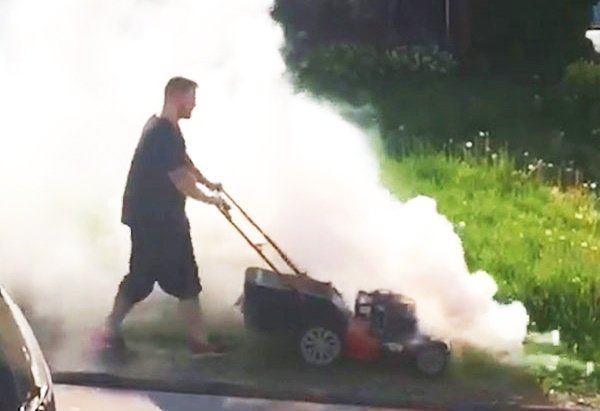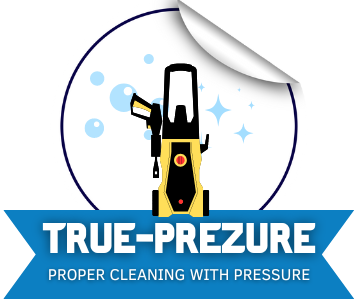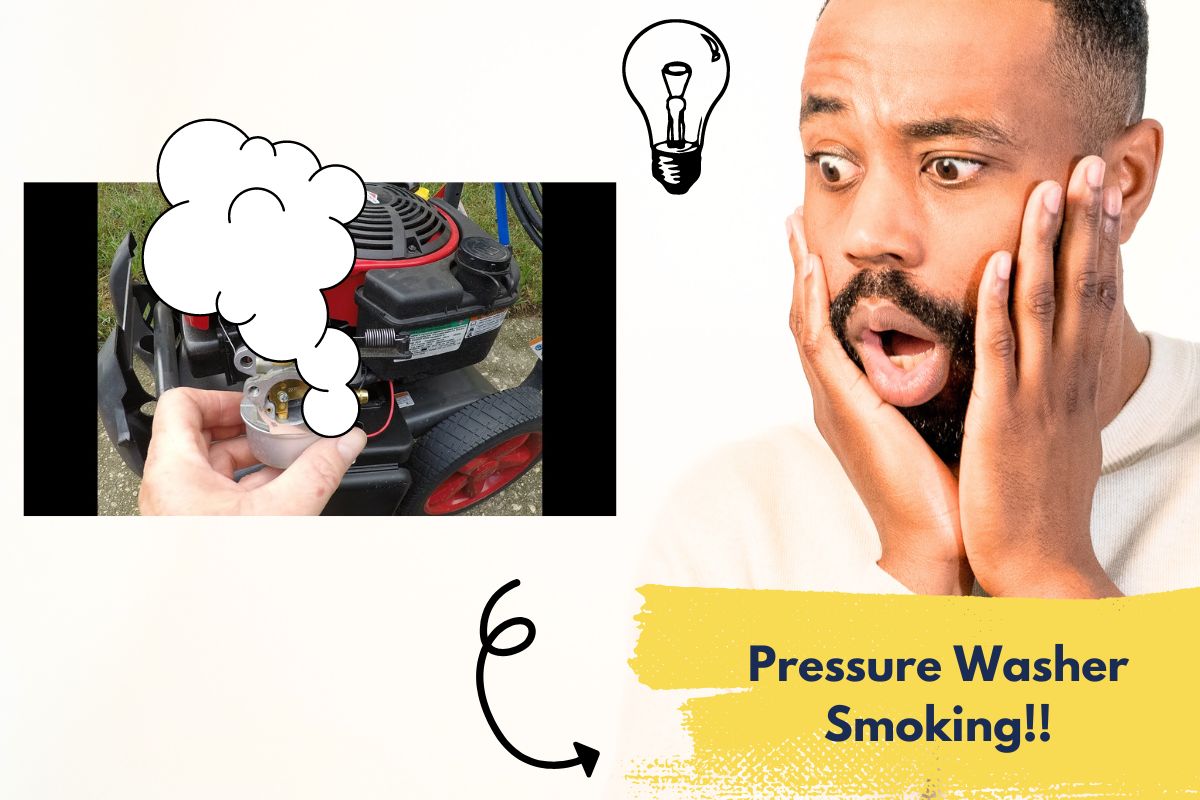Experiencing smoke emanating from your pressure washer is a cause for concern that troubles many homeowners and DIY enthusiasts. Smoke is an alarming indicator of potential issues with any machinery, including pressure washers. It’s essential to address this problem promptly and effectively.
But don’t worry, this guide will provide you with the common reasons why your pressure washer might be smoking and offer solutions on how to fix the problem.
Take a moment to unwind, grab a cup of coffee, and join us as we delve into our comprehensive guide on troubleshooting pressure washer smoke issues!
Why Smoking in Pressure Washer -Common Reasons for Smoke
Smoke coming from your pressure washer can indicate a number of issues that need to be addressed. Check blow points:
Solutions
When you notice smoke coming from your pressure washer, it’s important to take immediate action. Fortunately, there are several solutions available that can help you resolve the issue.
Why Is My Pressure Washer Pulsating- Best Explanation!
The first essential solution is to meticulously inspect the oil level and immediately replenish it if it falls below the recommended threshold. Insufficient oil levels can lead to excessive friction, which, in turn, can result in the production of smoke. Furthermore, it is imperative to thoroughly examine the condition of the air filter and ensure that it is completely free from any blockages and contaminants, as a clogged air filter can also significantly contribute to the smoking issue.
Another absolutely critical step in resolving this problem is to promptly replace any worn or damaged components, such as hoses or spray guns. Compromised parts may not be capable of withstanding the high-pressure water flow, potentially leading to overheating and, ultimately, causing the emission of smoke.
Make sure that you’re using the right cleaning agents for your pressure washer. Using harsh chemicals that aren’t approved for use in a pressure washer could damage its parts leading to smoking problems.
By following these simple solutions, you’ll be able to quickly identify why your pressure washer was causing smoke and prevent it from happening again in future uses.
Necessary maintenance
Necessary maintenance is crucial for keeping your pressure washer running smoothly and preventing smoking. The first step in maintaining your pressure washer is to read the owner’s manual carefully to understand the manufacturer’s recommendations.
The foundational and paramount aspect of maintenance is the routine cleaning that should be performed after every single use. This indispensable process entails thoroughly flushing out any accumulated dirt, debris, and detergent residue from all components, including hoses, nozzles, filters, and pump systems.
Additionally, it is imperative to regularly monitor the oil levels to guarantee the adequate lubrication of moving parts and to prevent the potentially disastrous consequences of engine overheating or seizing. For precise guidelines on the frequency of oil changes according to your usage pattern, consult the manufacturer’s manual.
How to Make Snow Foam Car Wash-Full Guide
Inspecting hoses and other components for cracks or leaks will prevent water from spraying out in unintended directions that can cause damage or harm. Replacing worn-out parts promptly can also avoid more costly repairs down the line.
Storing your pressure washer properly by draining all fluids before long-term storage will maintain its longevity. Avoid leaving it exposed to extreme temperatures or weather conditions that may cause rusting or corrosion of metal components.
What If Your Pressure Washer Is Blowing White Or Black Smoke?
If you happen to observe your pressure washer emitting either white or black smoke, this might signal a more critical underlying issue. White smoke is often indicative of water in the fuel system, while black smoke can point to a fuel mixture that is excessively rich.
To address this concern, begin by examining the air filter, ensuring it is unobstructed and free from debris. Subsequently, scrutinize the spark plug to ascertain it is not fouled or damaged. If these components are in good condition, then shift your focus to thoroughly cleaning the carburetor.

Start by draining any old fuel from the tank and replacing it with fresh gasoline. Then remove the carburetor bowl and clean it thoroughly with carburetor cleaner spray. Check all jets for blockages and clear them if needed before reassembling everything.
If after performing these steps your pressure washer still blows white or black smoke, consider seeking professional help as there may be underlying issues that require further attention.
How To Check Oil Of A Smoking Pressure Washer
One of the contributing factors to your pressure washer emitting smoke could be insufficient or contaminated oil. Ensuring the regular inspection and replacement of your pressure washer’s oil can effectively prevent this problem from occurring.
To inspect the oil in a smoking pressure washer, commence by turning off the engine and allowing it to completely cool down. Identify the dipstick located on the side of the engine and carefully remove it. Afterward, use a cloth to thoroughly wipe the dipstick clean before reinserting it into its designated slot.
Remove the stick again and check for two things; firstly, ensure that its level is between “low” and “full.” Secondly, verify if you notice any metal shavings or dirt particles within the oil which may signify excess wear on internal components.
If either issue occurs, drain all old oil from your machine by tilting it towards an empty container until all fluid has emptied out. Fill up with fresh recommended grade engine lubrication before starting up its motor again.
Frequently checking on your power washers’ oil levels can go a long way in avoiding smoke problems.
Can You Lay A Pressure Washer On Its side?
When contemplating the storage and transportation of your pressure washer, the safety of laying it on its side depends on the type of pressure washer you own.
For gas-powered pressure washers, it is not advisable to lay them on their side. Doing so can lead to oil leakage into areas where it shouldn’t be, potentially causing damage to the engine and a decline in performance over time.
Conversely, electric pressure washers can usually be laid on their side without encountering problems. Nonetheless, it is always prudent to refer to your owner’s manual for precise instructions concerning the storage and transportation guidelines specific to your model.
If you need to move your pressure washer around frequently or store it in a tight space, consider investing in a compact model that won’t take up much room. Additionally, make sure to properly drain all fluids before storing your unit for an extended period of time.
In general, taking care of your pressure washer by following manufacturer guidelines will help ensure that it lasts longer and performs better over time.
Power Washer Blowing A Bunch Of Smoke
Is your power washer emitting an excessive amount of smoke? If that’s the case, there are several potential reasons for this occurrence. One prevalent explanation is that the engine might be burning oil, leading to the generation of thick, black, or even blue smoke.
Another conceivable cause is an incorrect fuel mixture. If the ratio of oil to gas in your mixture is imbalanced, such as using an excessive amount of oil, it could result in an overabundance of smoke being expelled from the exhaust.
In some cases, a clogged air filter or carburetor can also lead to smoking from your power washer. When these components aren’t functioning properly, they may not allow enough air into the engine for efficient combustion.
If you notice your power washer blowing smoke during use, it’s important to address the issue as soon as possible. Continuing to operate a smoking machine could lead to further damage and potentially costly repairs down the line.
To diagnose and fix any issues with your power washer smoking, consult with an experienced technician or refer to your owner’s manual for troubleshooting tips specific to your model.
Why Is My Pressure Washer Overheating?
Is your pressure washer getting excessively hot and experiencing overheating issues? Overheating is a prevalent problem encountered by many pressure washer owners, and it can stem from various factors.
How to Wash a Car with a Pressure Washer -Expert Guide!
One potential root cause of overheating is inadequate water flow. When there isn’t a sufficient amount of water passing through the pump, it can rapidly overheat and lead to damage to the machine. Therefore, it’s crucial to inspect for any obstructions or blockages in the hose or nozzle to ensure proper water flow.
Ryobi Vs Greenworks Pressure Washer winner in 2023
Another reason for overheating could be due to a dirty air filter or damaged spark plug. A clogged air filter will limit airflow to the engine, causing it to work harder and generate more heat than necessary. Similarly, a faulty spark plug can cause incomplete combustion, leading to high engine temperatures.
Running your machine for an extended period without giving it time to cool down can also result in overheating. It’s essential always to give your machine some rest after using it continuously for 30-45 minutes.
By understanding these causes of an overheated pressure washer, you’ll be able to identify and fix them promptly before they escalate into bigger problems that require professional assistance.
Is Your Electric Pressure Washer Smoking?
Smoking in a pressure washer can arise from several factors, including overheating, neglected maintenance, improper oil levels, and others. Nevertheless, by diligently practicing proper care and adhering to regular maintenance routines, such as frequent oil changes and regular filter cleaning, you can effectively prevent smoke emissions from your pressure washer.
It is essential to identify the root cause of the problem before trying to fix it. Always refer to your manufacturer’s instructions for any queries or doubts you may have regarding your unit.
If you’re using an electric pressure washer that is smoking, there could be several reasons behind it. It could either be due to motor failure or damaged electrical components in some cases. Electrical issues should always be handled by professionals since they require specialized knowledge.
By following these simple steps and keeping up with preventive measures like regular cleaning and maintenance routines, you can ensure optimal performance from your power washer without encountering any unexpected problems like smoking!
Faq
Why does my pressure washer smell like burning plastic?
There are several reasons why your pressure washer might emit a burning plastic odor, with the most prevalent one being overheating. Overheating can occur when you operate the machine for an extended period or if there’s a blockage in the nozzle or hose. In such instances, the motor will persist in running but with diminished efficiency.
Another reason could be electrical damage to either the motor or wiring that causes insulation breakdown and melting of parts resulting in a burning plastic odor. It’s advisable to unplug your power washer immediately once you notice any unusual smell as it indicates something wrong is happening inside.
The use of detergents can also cause a burning plastic odor from your power washer, especially if used excessively or not rinsed off thoroughly. The chemicals react with specific materials of certain components causing them to break down which releases fumes that have a distinct unpleasant smell.
Overloading your machine can lead to excessive wear and tear on its parts leading them to melt and emit smoke-like fumes that produce undesirable odors similar to burnt plastic.
In summary, there are multiple reasons why your pressure washer may emit a burning-plastic-like odor; therefore, it’s crucial always being vigilant while using it by inspecting regularly for worn-out hoses & wiring issues aside from avoiding prolonged usage without breaks
Why did my washer stop working and smell like burning?
Have you noticed a burning smell coming from your pressure washer, and then it suddenly stopped working? This can be alarming and frustrating. However, this issue is not uncommon among power washers.
One possible reason for this problem is that the motor has overheated. When using the machine continuously for an extended period of time or leaving it on while not in use can cause the motor to overheat. The burning smell could indicate that the insulation around the wires inside the motor has melted due to excessive heat.
Another possibility is that there’s an issue with one of the components like a damaged pump or blocked water inlet filter which puts extra strain on the engine causing it to work harder than necessary which in turn causes it to overheat.
It could also be due to low oil levels if your pressure washer uses oil-lubricated pumps; running without adequate lubrication causes friction between moving parts leading them towards wear out faster which eventually leads to its failure.
If your pressure washer smells burnt plastic, stopping abruptly while still plugged-in can lead damage caused by electrical malfunction such as short circuiting and melting of internal parts such as capacitors.
In any case, never try opening up your power washer yourself instead take help from professional technicians who have expertise in repairing such machines.
Can a power washer overheat?
Power washers are a great tool for cleaning various surfaces. However, there is a risk of overheating when using them for extended periods. Overheating can occur due to several reasons, such as inadequate water flow or high-pressure settings.
One common cause of power washer overheating is the buildup of air pockets in the pump system. These pockets can lead to cavitation, which generates heat and eventually damages the pump components. Another reason could be that the unit’s motor or pump may not have enough ventilation causing it to overheat.
To prevent your power washer from overheating, make sure you use it on appropriate surfaces and do not aim it at electrical sources or windows during operation. Additionally, avoid operating the machine continuously for more than 30 minutes at a time without giving it a break.
It’s also essential to check your power washer’s manual before usage and follow all maintenance instructions carefully. Regularly changing oil, fuel filters and air filters will help ensure optimal performance while preventing potential damage caused by overheating.
Always monitor your pressure washing activity closely as this powerful equipment requires proper care and attention during its usage to prevent any accidents from happening along with keeping in mind how long you’ve been using it non-stop so that no unnecessary damage occurs due to an overburdened machine!

